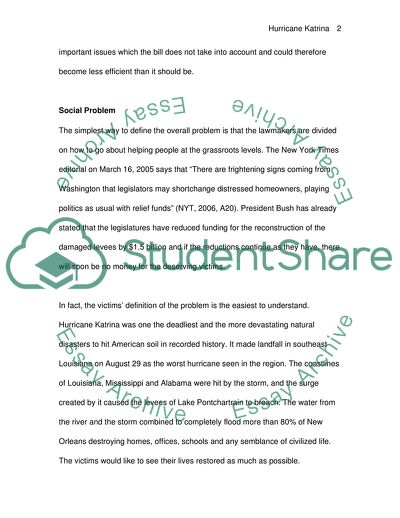Cite this document
(The Devastation Caused by Hurricane Katrina Coursework, n.d.)
The Devastation Caused by Hurricane Katrina Coursework. https://studentshare.org/environmental-studies/1703764-policy-analysis-on-the-legislative-bill-number-hr-4197-hurricane-katrina-recovery-reclamation-restoration-reconstruction-and-reunion-act-of-2005-introduce
The Devastation Caused by Hurricane Katrina Coursework. https://studentshare.org/environmental-studies/1703764-policy-analysis-on-the-legislative-bill-number-hr-4197-hurricane-katrina-recovery-reclamation-restoration-reconstruction-and-reunion-act-of-2005-introduce
(The Devastation Caused by Hurricane Katrina Coursework)
The Devastation Caused by Hurricane Katrina Coursework. https://studentshare.org/environmental-studies/1703764-policy-analysis-on-the-legislative-bill-number-hr-4197-hurricane-katrina-recovery-reclamation-restoration-reconstruction-and-reunion-act-of-2005-introduce.
The Devastation Caused by Hurricane Katrina Coursework. https://studentshare.org/environmental-studies/1703764-policy-analysis-on-the-legislative-bill-number-hr-4197-hurricane-katrina-recovery-reclamation-restoration-reconstruction-and-reunion-act-of-2005-introduce.
“The Devastation Caused by Hurricane Katrina Coursework”. https://studentshare.org/environmental-studies/1703764-policy-analysis-on-the-legislative-bill-number-hr-4197-hurricane-katrina-recovery-reclamation-restoration-reconstruction-and-reunion-act-of-2005-introduce.


